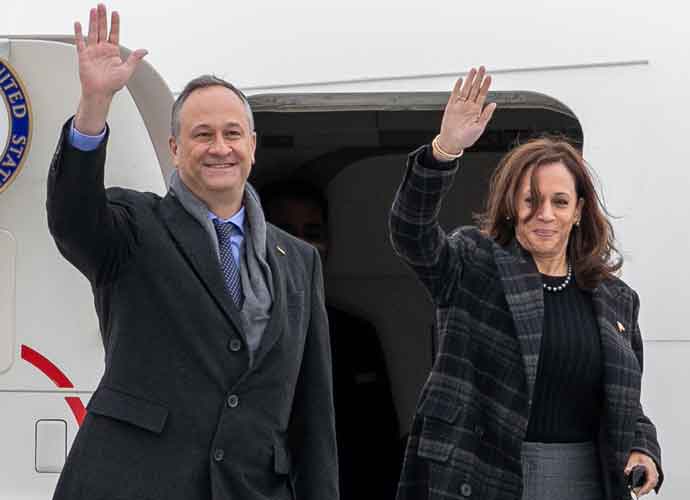Biden Administration’s Shifting Tone On Israel Is Not Helping Further Negotiations For Truce
Peace talks in the Middle East have broken down only two weeks after Vice President Kamala Harris called for an immediate temporary ceasefire during a speech she gave in Selma, Alabama, to commemorate Bloody Sunday.
The vice president said during her remarks, “Given the immense scale of suffering in Gaza, there must be an immediate cease-fire at least for the next six weeks, which is currently on the table. This will get the hostages out and a significant amount of aid in.”
This statement echoed President Joe Biden’s recent shift in tone regarding Israel’s war on Gaza in response to upheaval around the issue within his base.
Earlier this month, he ordered aid airdropped to Gaza. He also appeared on Late Night with Seth Myers and when pressed on the issue said, “The hostages being held must be released,” speaking of 134 Israeli hostages held by Hamas.
Subscribe to our free weekly newsletter!
A week of political news in your in-box.
We find the news you need to know, so you don't have to.
Biden continued, “There’s been an agreement by the Israelis that they would not engage in activities during Ramadan as well, in order to give us time to get all the hostages out. I think if we get that, that temporary cease-fire, we can move in a direction where we can change the dynamic.”
But after negations in Cairo broke down last week, the cease-fire seems unlikely to happen.
Representatives of Hamas met with mediators from Egypt and Qatar in Cairo for peace talks, while Israel refused to send a delegation because Hamas had not provided a list of hostages, a recent demand from Israel. The Biden administration insists that Israel has already accepted the general terms of a six-week pause, while Hamas is holding out.
Hamas left the negotiations Thursday with no significant breakthroughs. Talks are set to resume next week according to officials. Hamas senior leader Osama Hamdan said in a news conference in Beirut on Tuesday that Hamas has, “confirmed our condition for a cease-fire: complete [IDF] withdrawal from the sector, the return of displaced persons to the areas they left, especially in the north, and the provision of sufficient aid, relief, and reconstruction.”
During these meetings in Cairo, Harris met with a member of Benjamin Netanyahu’s cabinet, Benny Gantz, in Washington, D.C. The White House said in a readout of the meeting: “She urged Israel to take additional measures in cooperation with the United States and international partners to increase the flow of humanitarian assistance into Gaza and ensure its safe distribution to those in need.”
Gantz’s visit was not authorized by Netanyahu, reveling potential friction at the top of the Israeli command, but Gantz has made statements that mirror his prime minister’s about negotiating with Hamas. Return the hostages by the beginning of Ramadan or “the fighting will continue everywhere, to include the Rafah area,” he has said.
Rafah is a city in southern Gaza where almost a million refugees have been sheltering since the war began, and is Israel’s next target in their ongoing war on Hamas. Netanyahu has said the attack on Rafah is inevitable, regardless of release of the hostages. “If we have a deal, it will be delayed somewhat, but it will happen,” Netanyahu said. “If we don’t have a deal, it will happen anyway.”
As the war has continued, the humanitarian crisis in Gaza has been more exposed, and Biden’s unwavering support of Israel has begun to damage him politically.
Harris has demanded Israel open its borders to facilitate aid delivery. Biden has laid out plans for the U.S. to open a temporary port to help deliver aid. He also addressed the issue in his State of the Union address last week. “To the leadership of Israel I say this, humanitarian assistance cannot be a secondary consideration or a bargaining chip,” Biden said. “Protecting and saving innocent lives has to be a priority.”
Get the most-revealing celebrity conversations with the uInterview podcast!








Leave a comment